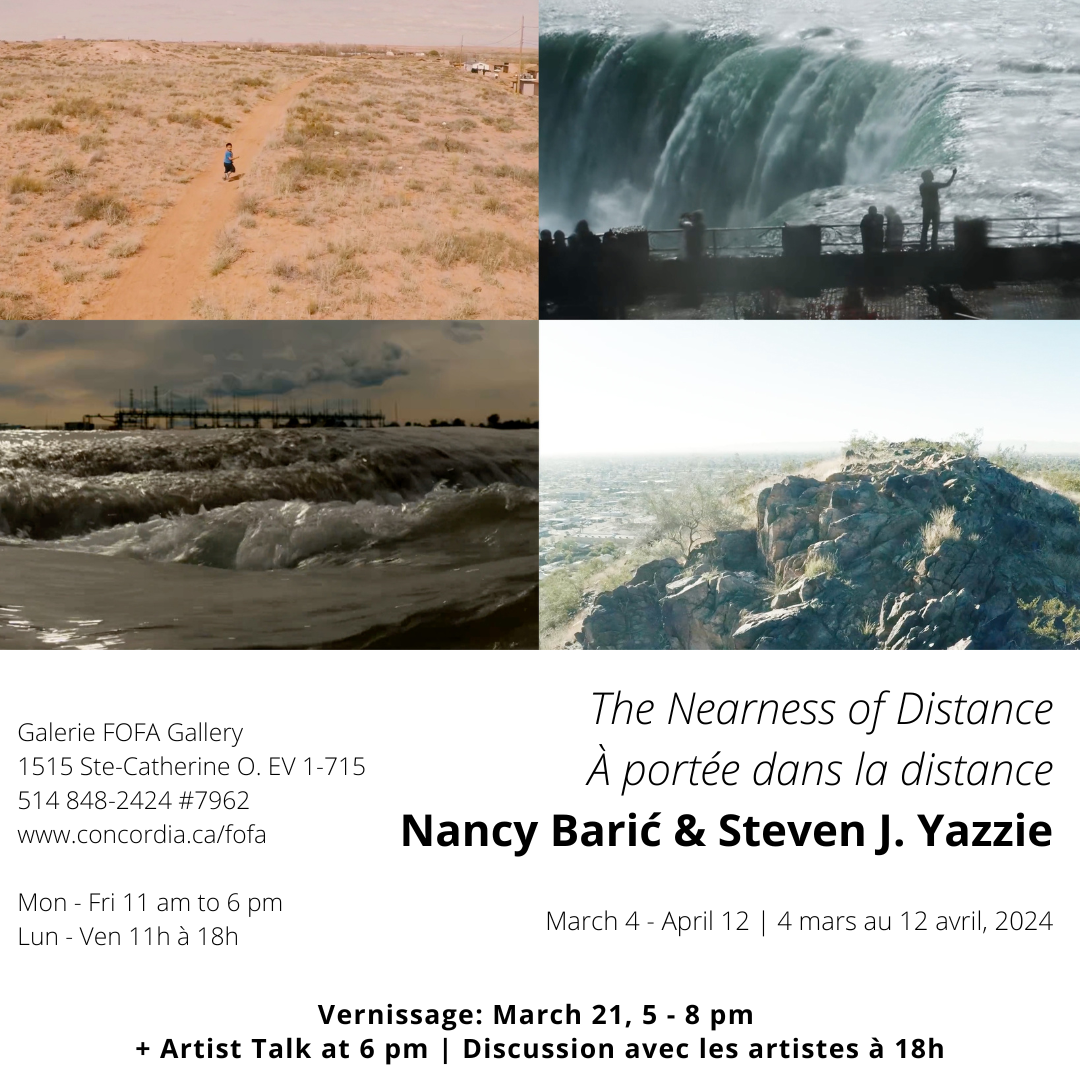Monsters Seen and Unseen
-Erin Joyce
“My Child, I will feed you, give you good health, and I will give you strength and courage.” These are the opening words of Steven J. Yazzie’s 2015 video, Mountain Song, which appear scrawled across the inky blank screen in white letters. The work evokes that of an epic poem akin to Homer or Virgil, signifying a journey that lies before the one who watches and listens to it. Vacillating between testimonies from Indigenous community members and archival audio bytes of the Apollo 11 lunar landing in 1969, the piece creates a tension between power structures, sacred knowledges, and the struggle between living in balance with the natural world and the relentless march of colonial progress through the mechanism and machinations of capitalism – pushing humanity to reach new heights at the expense of the natural order and health of the world.
Yazzie focuses in on the devastating impacts that uranium and its mining have had not only on Indigenous communities, but on the environment writ large, linking uranium to Indigenous cosmologies and histories – referring to the chemical element as an “invisible monster.” The development of uranium extraction and its weaponization forced/es a wedge between traditional ways of living, replacing a way to live with a colonial sickness that poisons the land, pollutes the water, and creates a level of radioactivity within the consciousness. When Yazzie writes “My child, what I am dressed with is what you are dressed with. I am your home and mother and father,” in the fourth and final verse of his poem, he reminds us that what we do to the earth, to our mother, our father, we do unto ourselves. A caution that the monsters we awaken cannot be put back into slumber.
The idea of monsters and the monstrous continues in the 2021 film by Nancy Barić, Electric Water. The film creates a pastiche of memory, histories, and connection – looking at her own heritage and ancestral arrival to North America from the Adriatic Sea and the origin stories and cosmologies of the Haudenosaunee and their connection to Niagara Falls. Barić illuminates the power of water, in natural understandings, capitalistic understandings, and spiritual understandings. In tying her own connection to this place, Barić speaks of Nikola Tesla, whose shared country of origin also creates a binding of herself and her genetic memory to the site of Niagara. Tesla’s invention and design of the first hydro-electric power plant at the Falls, which he envisioned as a force for good and that would provide free power for the people, was corrupted by the long tentacles of capitalism. Capitalism and its reach exist like a mutant creature – distorting, corrupting, and poisoning what it touches.
In the film, Barić interviews Rick Hill, a member of the Haudenosaunee community – who grew up near the Falls. Hill shares portions of his Tribe’s story of origin, talking about the Creator and his malevolent brother known as Flint. For every good thing the Creator brought into being, Flint would create a wicked counterpart, monsters. During a duel between the brothers, they threw and thrashed each other around, cataclysmically shifting and shaping the landscape, which Hill believes is what molded the Falls in its current form. To counteract the monsters of his brother’s making, the Creator brought to life Thunder Beings, that with the clap and shock of their existence, drove the monsters back into the ground; Beings which left the Falls when tourism took over – heading west to the Rockies – returning to bring rain every season. The film illuminates the severed connection to culture through colonial abuses and extractive methodological approaches to ‘progress.’ Through the commercialization of the natural world, the spiritual connection is cut – fissured in ways that create barriers to the holy relation to place. Barić and Yazzie show the fissures that occur when the pollution, extraction, and forced control over the earth take over, urging a return to the stories and power of living in balance.
Please view each film, Electric Water, and Mountain Song
